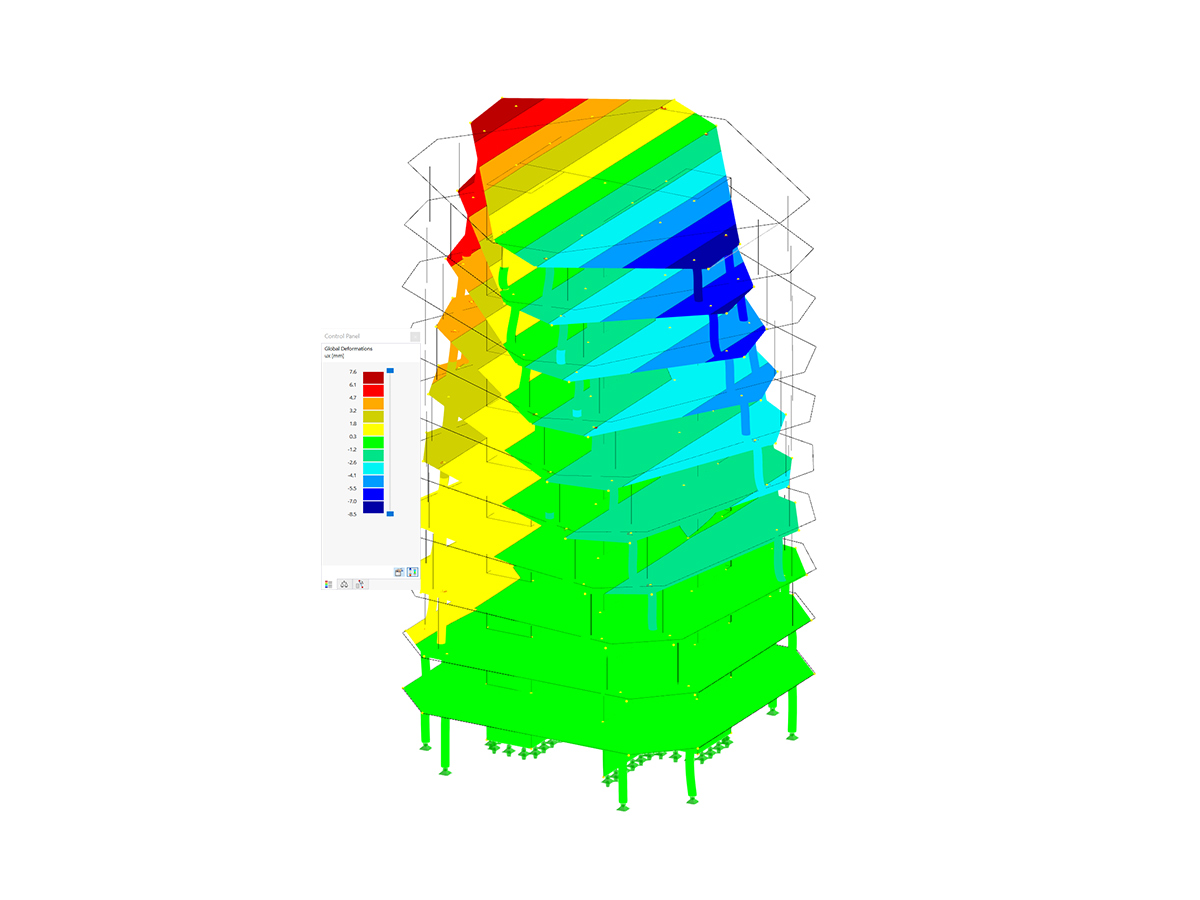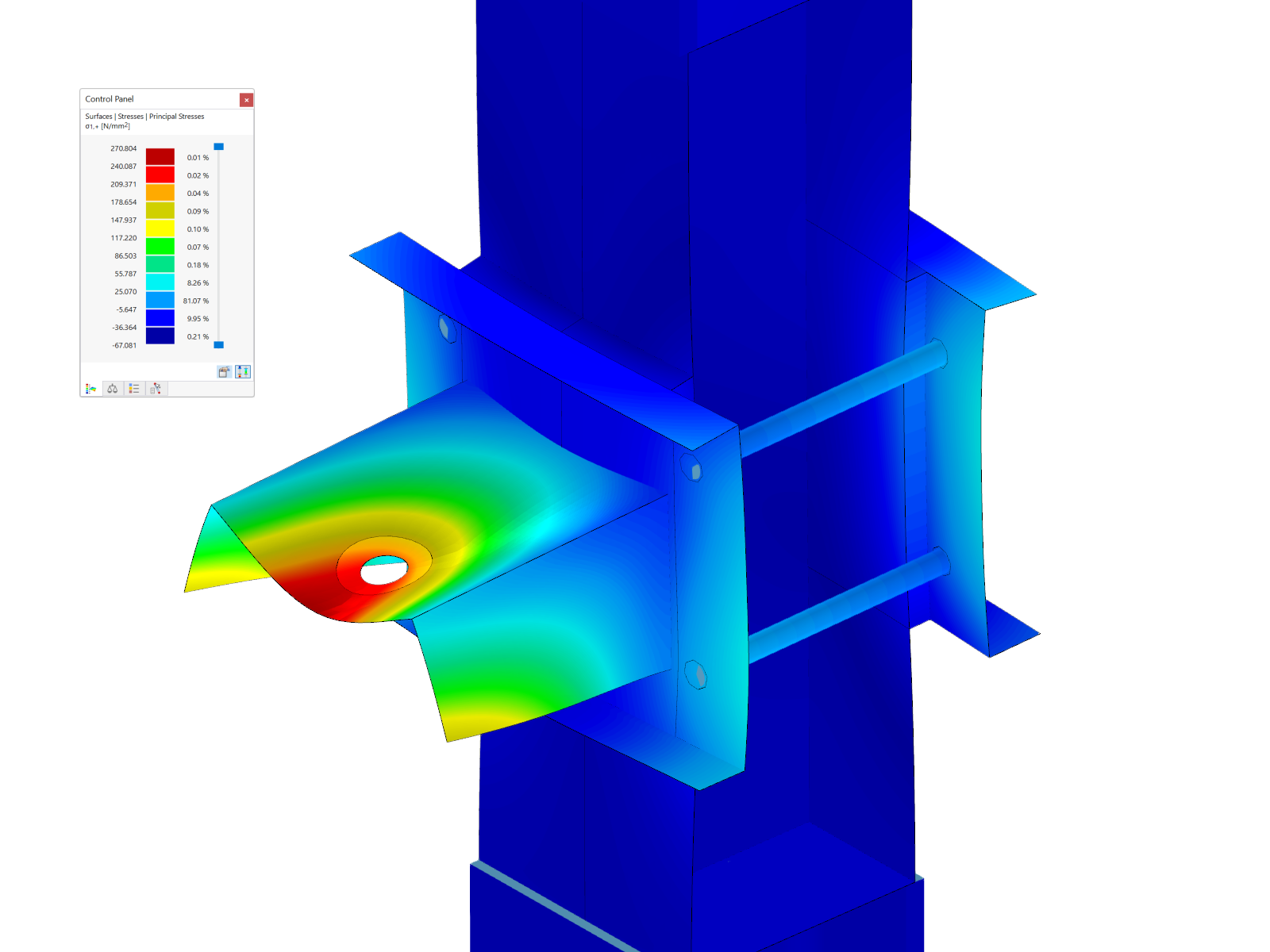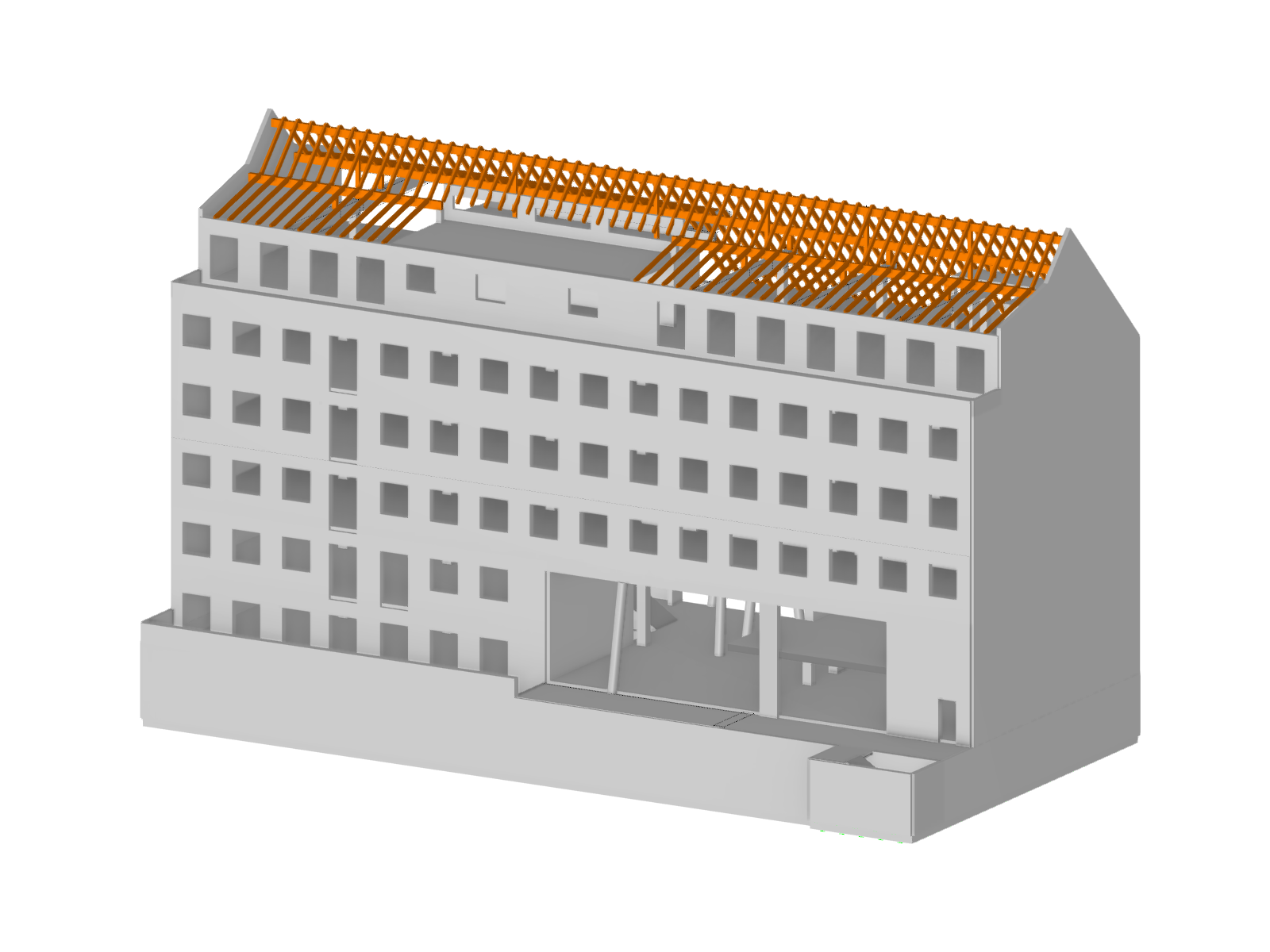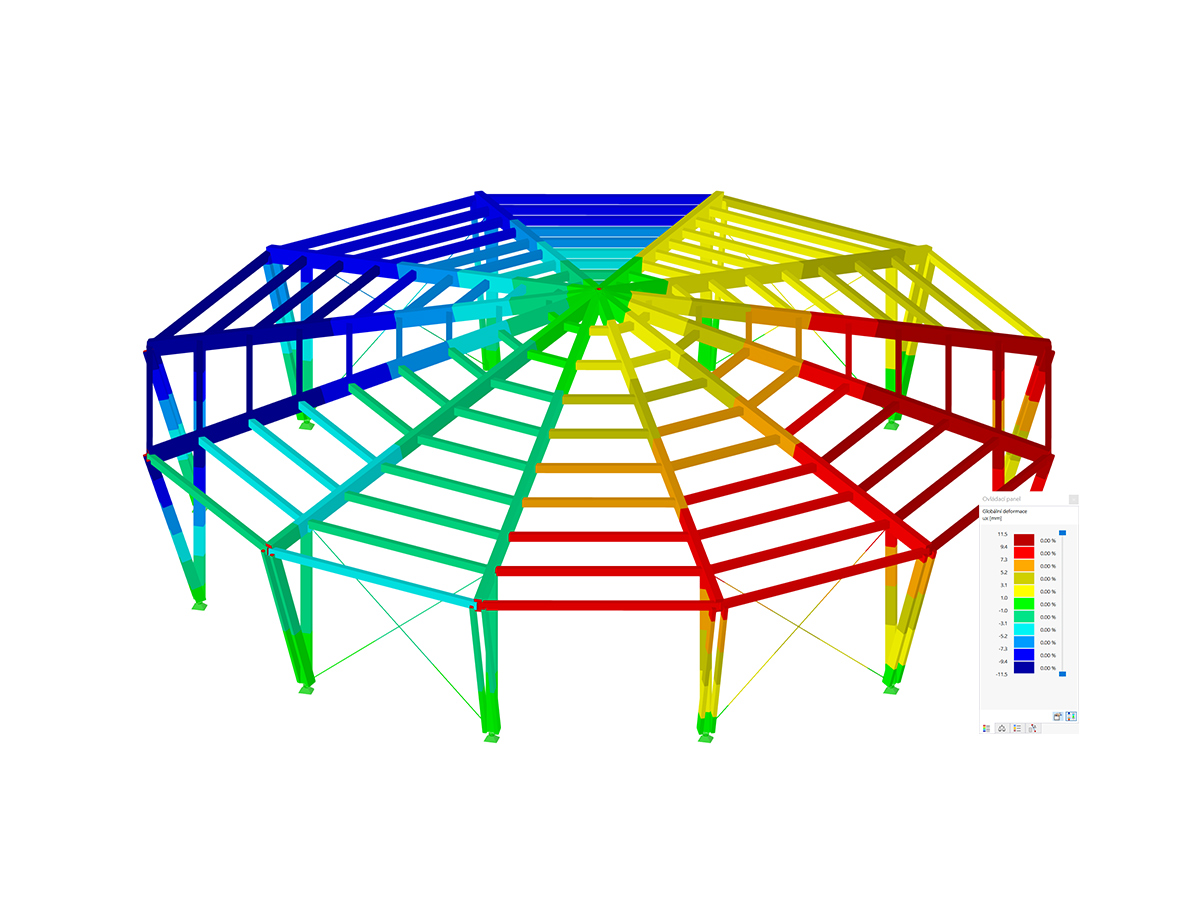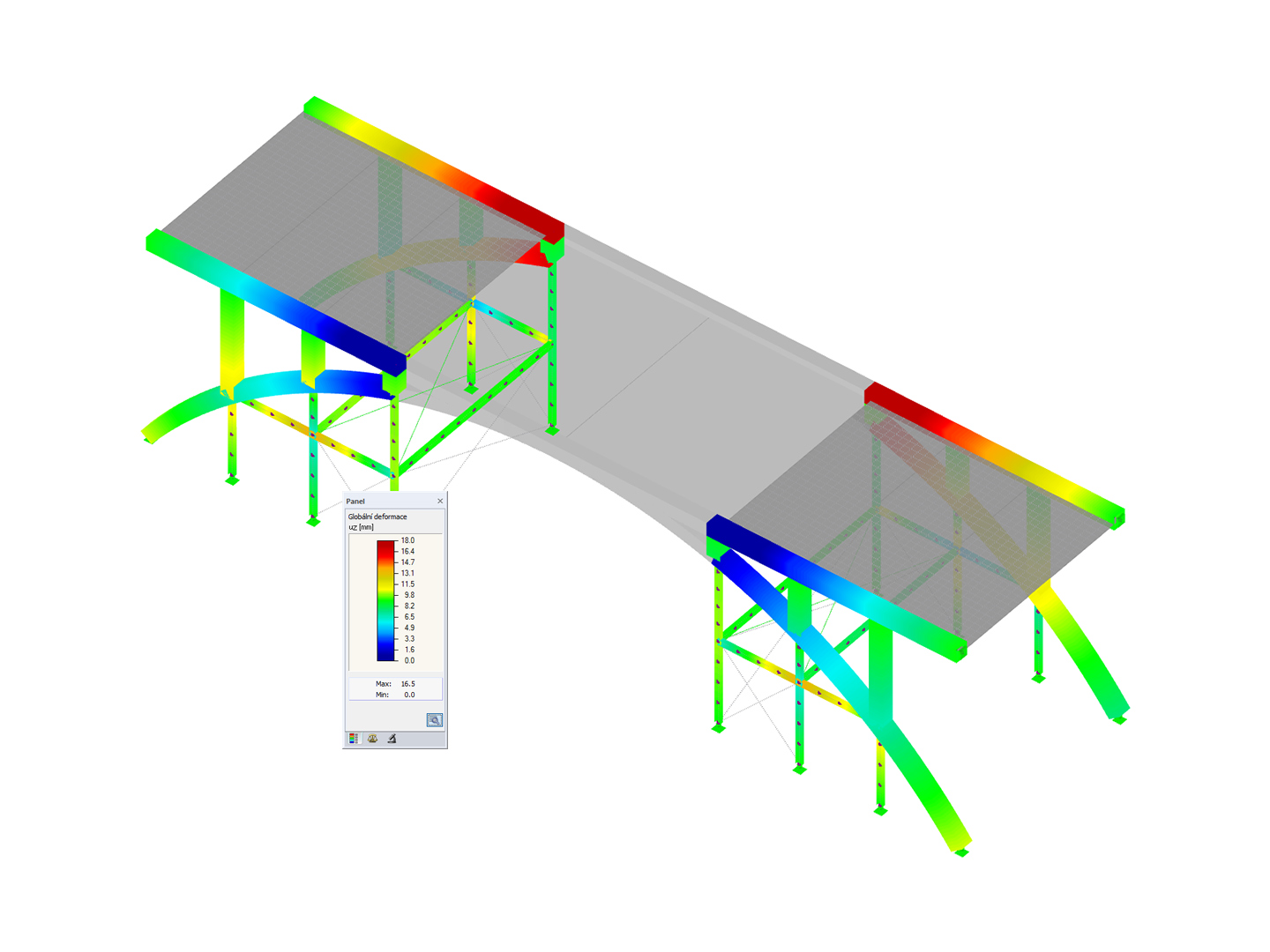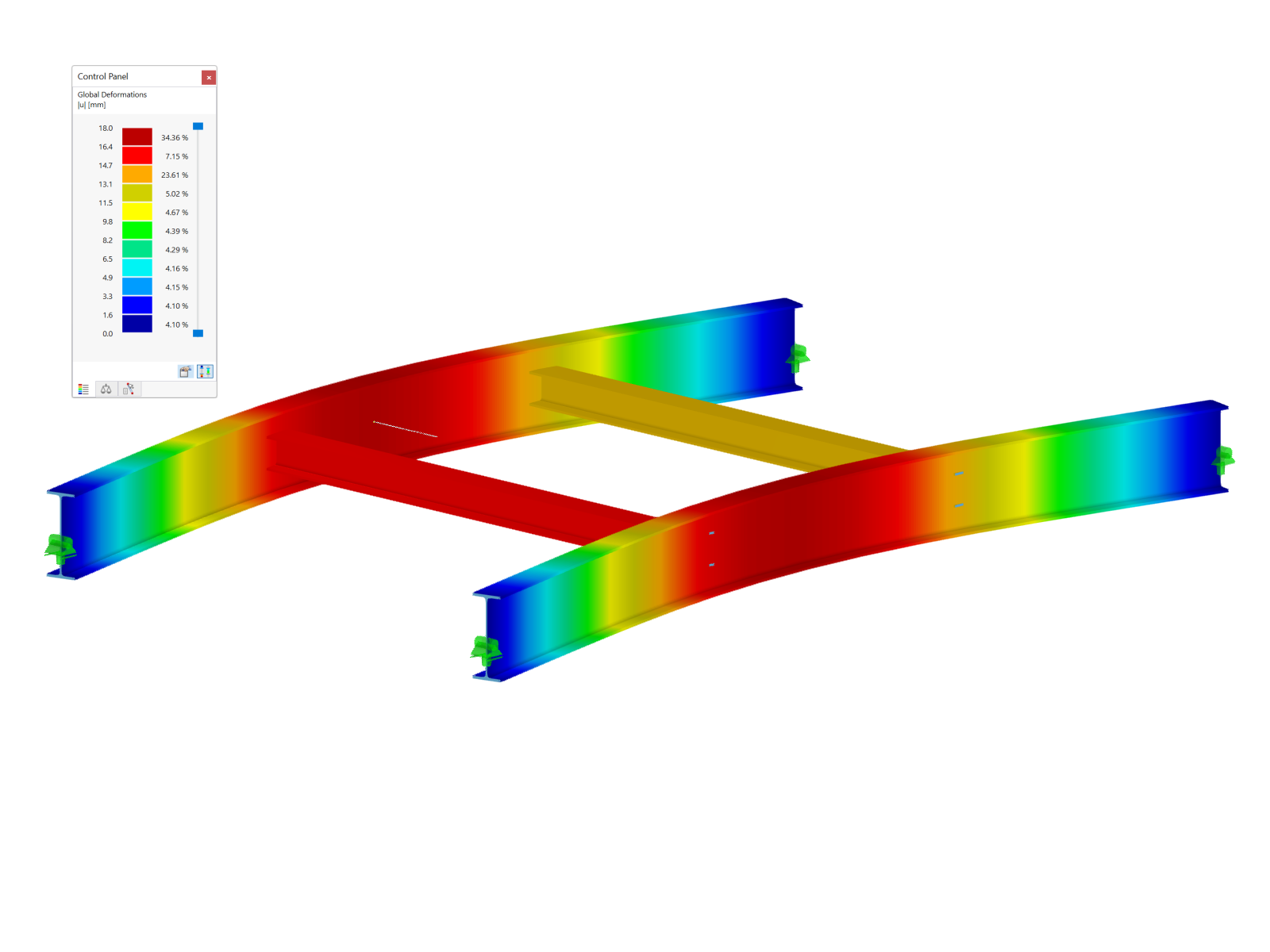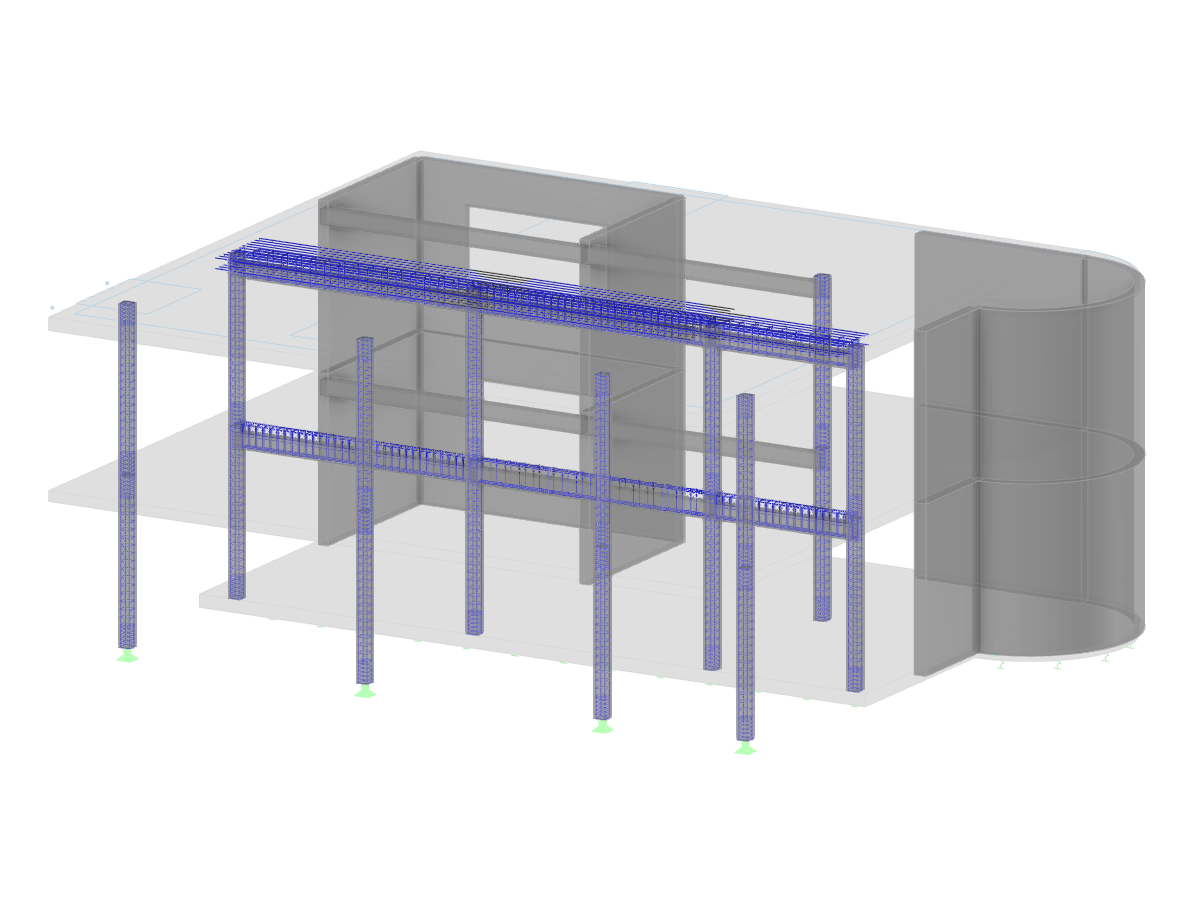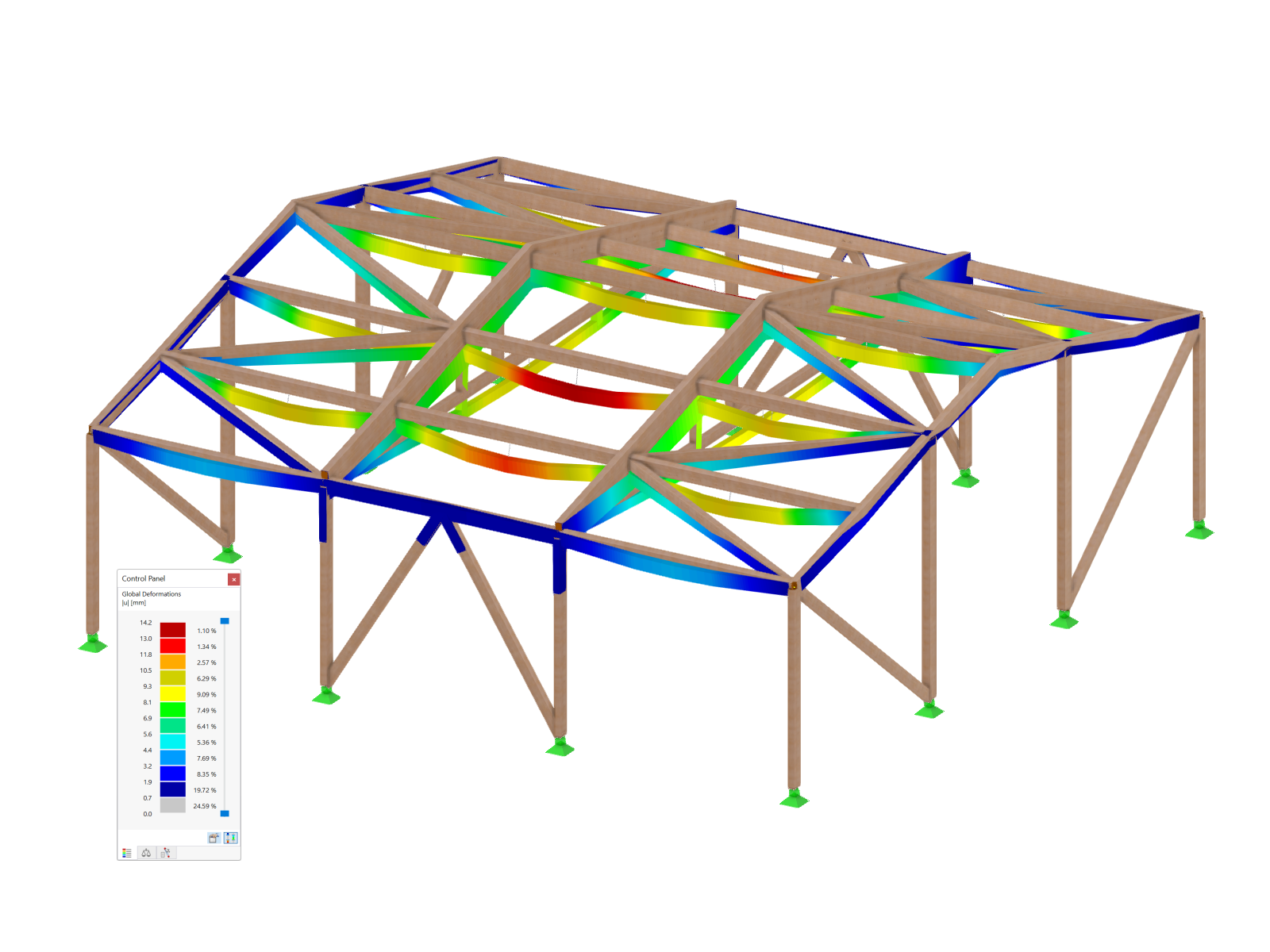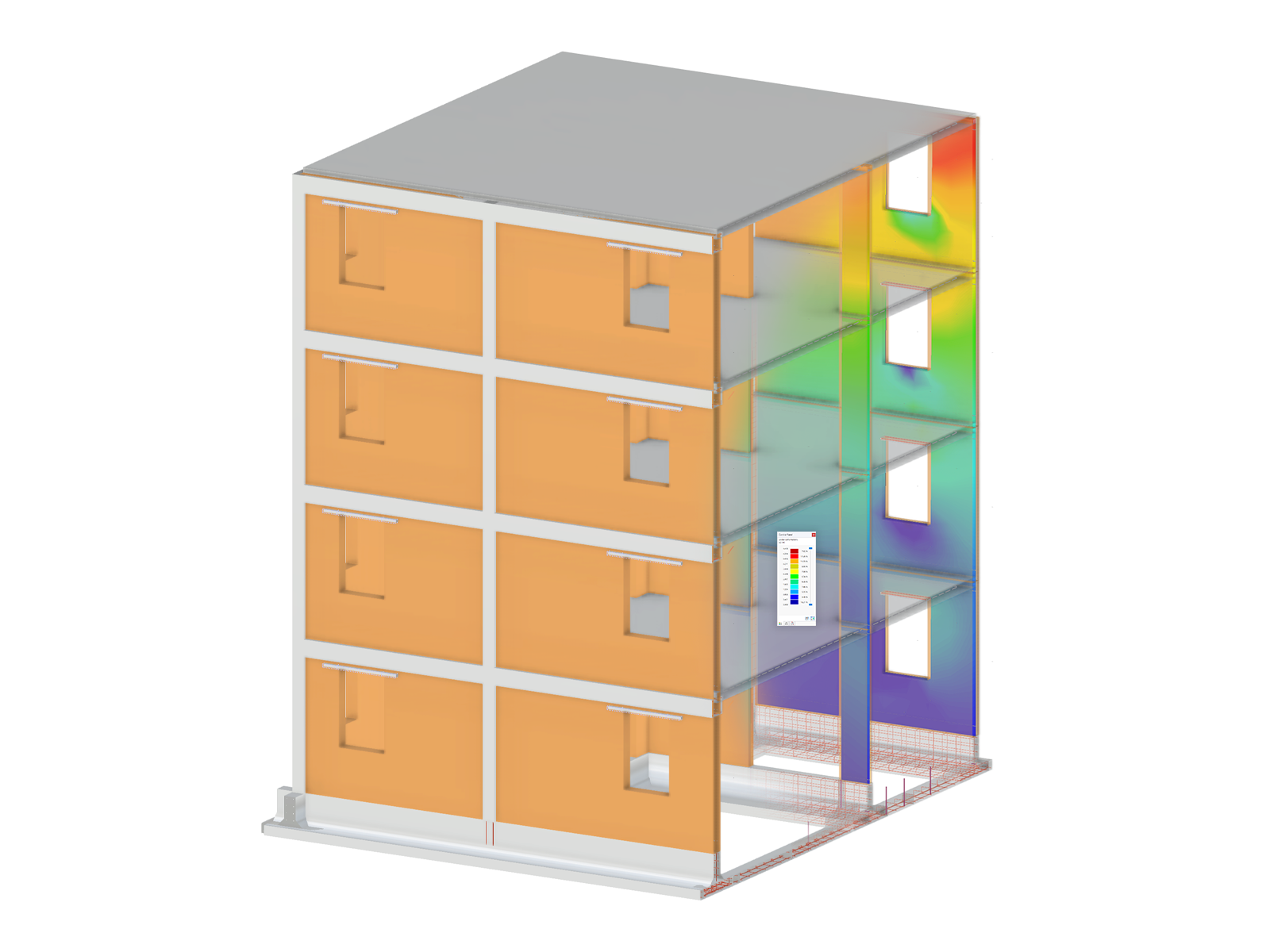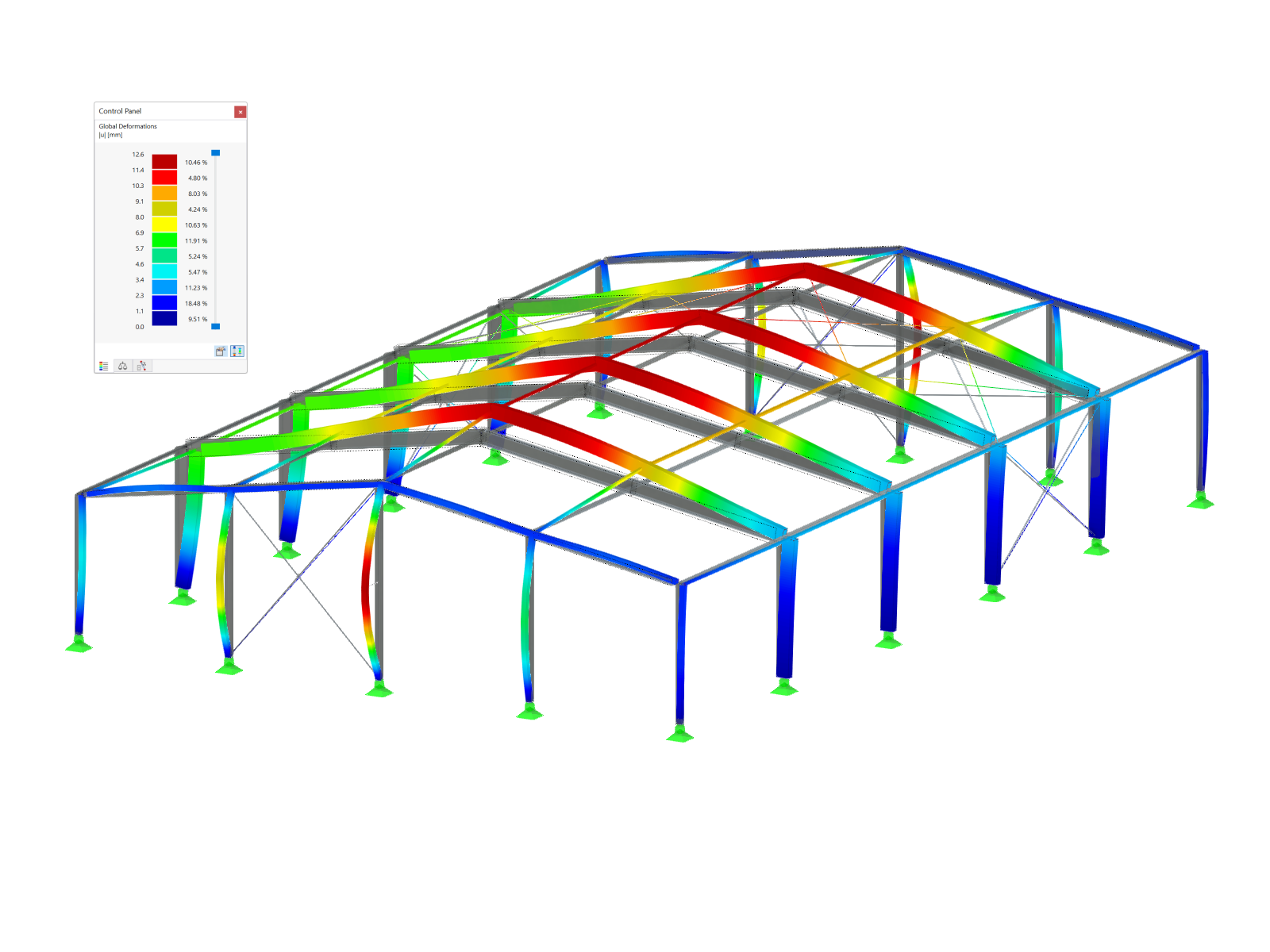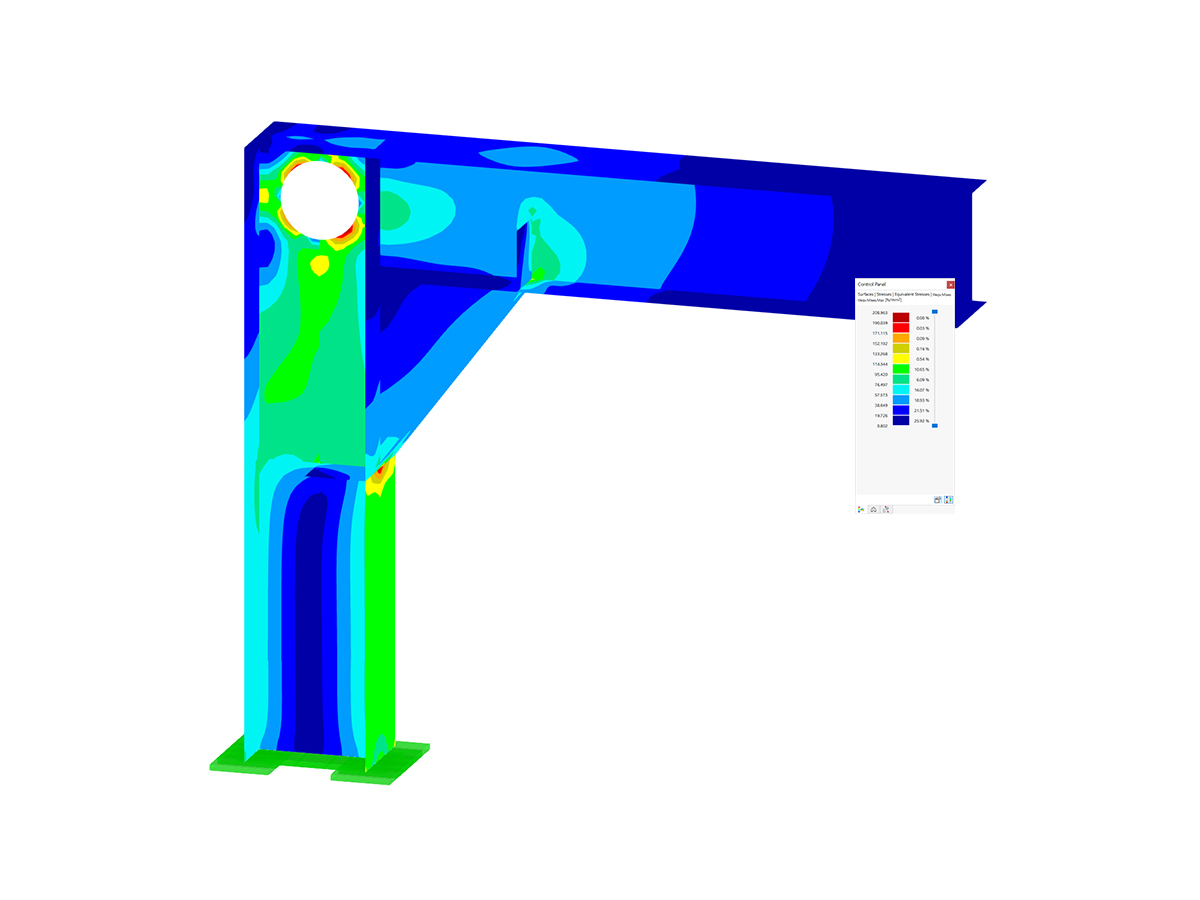Based only on the surface results or surface stresses, it is not possible to make a statement about the buckling behavior of the box girder. The stability behavior can be analyzed using the RF‑STABILITY add-on module. It determines the buckling shapes and critical load factors that allow a statement about the buckling behavior.
However, the buckling design has not yet been provided. For this purpose, the buckling shape would have to be transferred to the model, so it can be calculated according to the second-order analysis on the imperfect structural system. A stress analysis with the RF‑STEEL add-on module could then be used to carry out a buckling design.
The RF‑IMP add-on module facilitates the transfer of the buckling shape. Using this module, you can generate the equivalent geometry based on the stability mode so that you can perform a buckling design with a second-order stress analysis on the predeformed structure using RF‑STEEL.
The procedure in RFEM could look like this:
- Modeling of the entire cross-section as a 3D model
- Application of loads
- Calculation of buckling shapes with RF‑STABILITY
- Generation of an initial model with RF-IMP
- Calculation of load combinations according to the second-order analysis on the basis of the equivalent model
- Stress analysis with RF-STEEL
As an alternative, you can use the PLATE-BUCKLING module to analyze the buckling behavior.
There are some very interesting technical articles on this topic on our website.



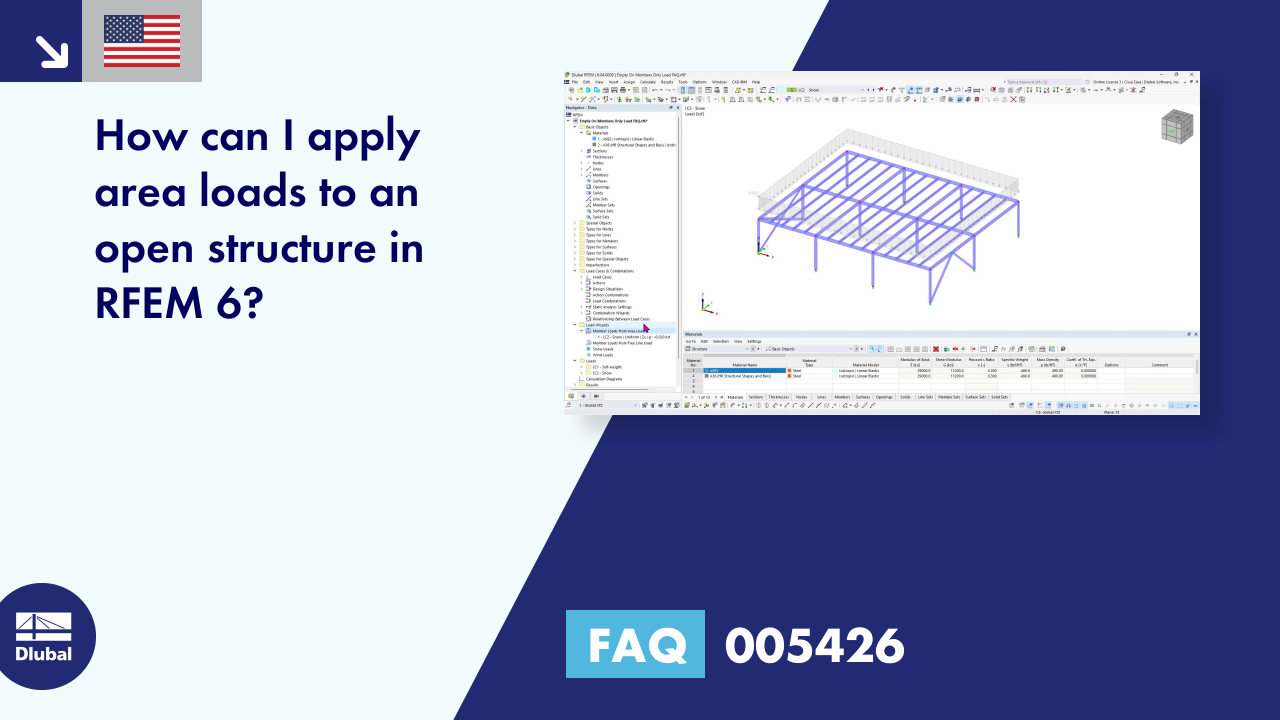















.png?mw=350&hash=f79867dbf405d536638daef39ee25b113e6e540d)







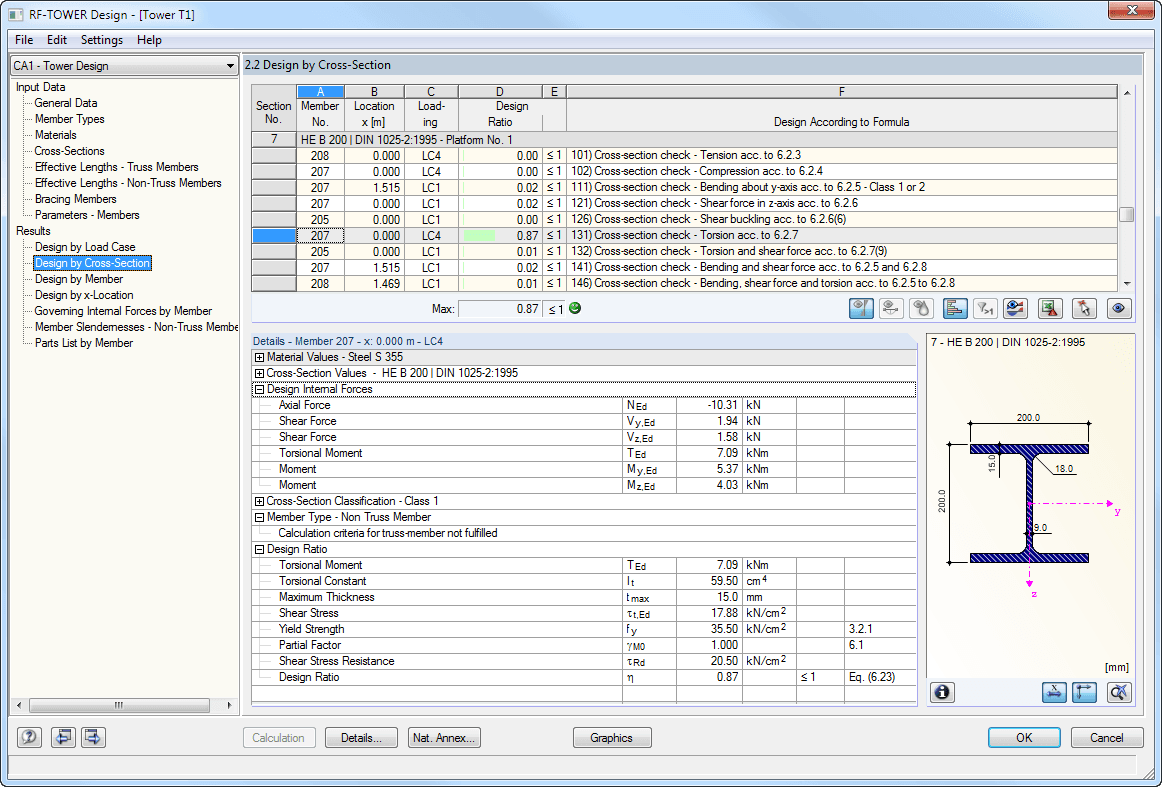
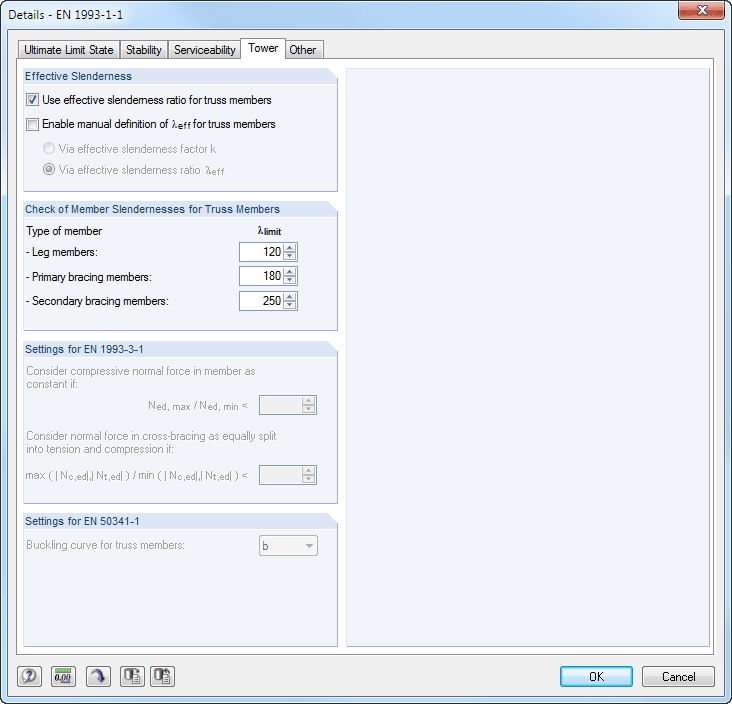








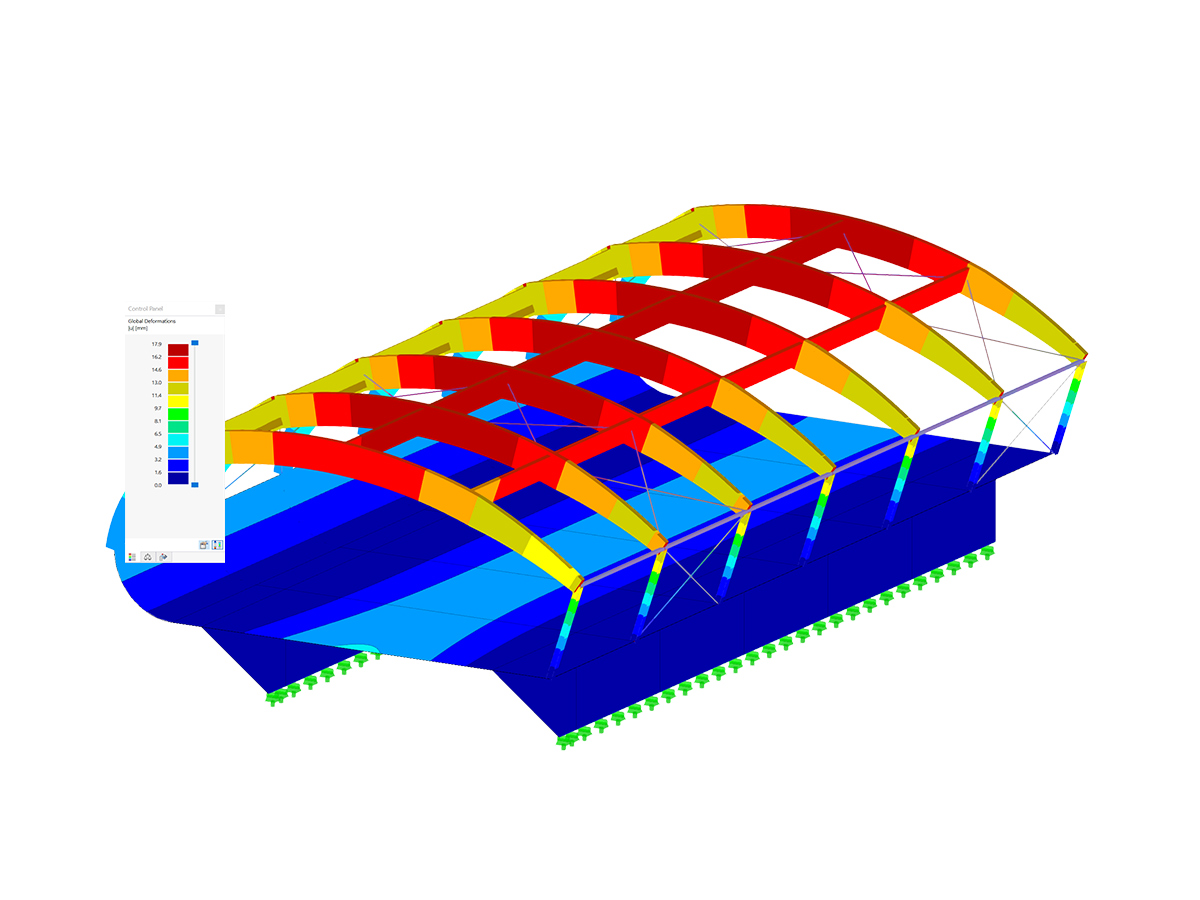
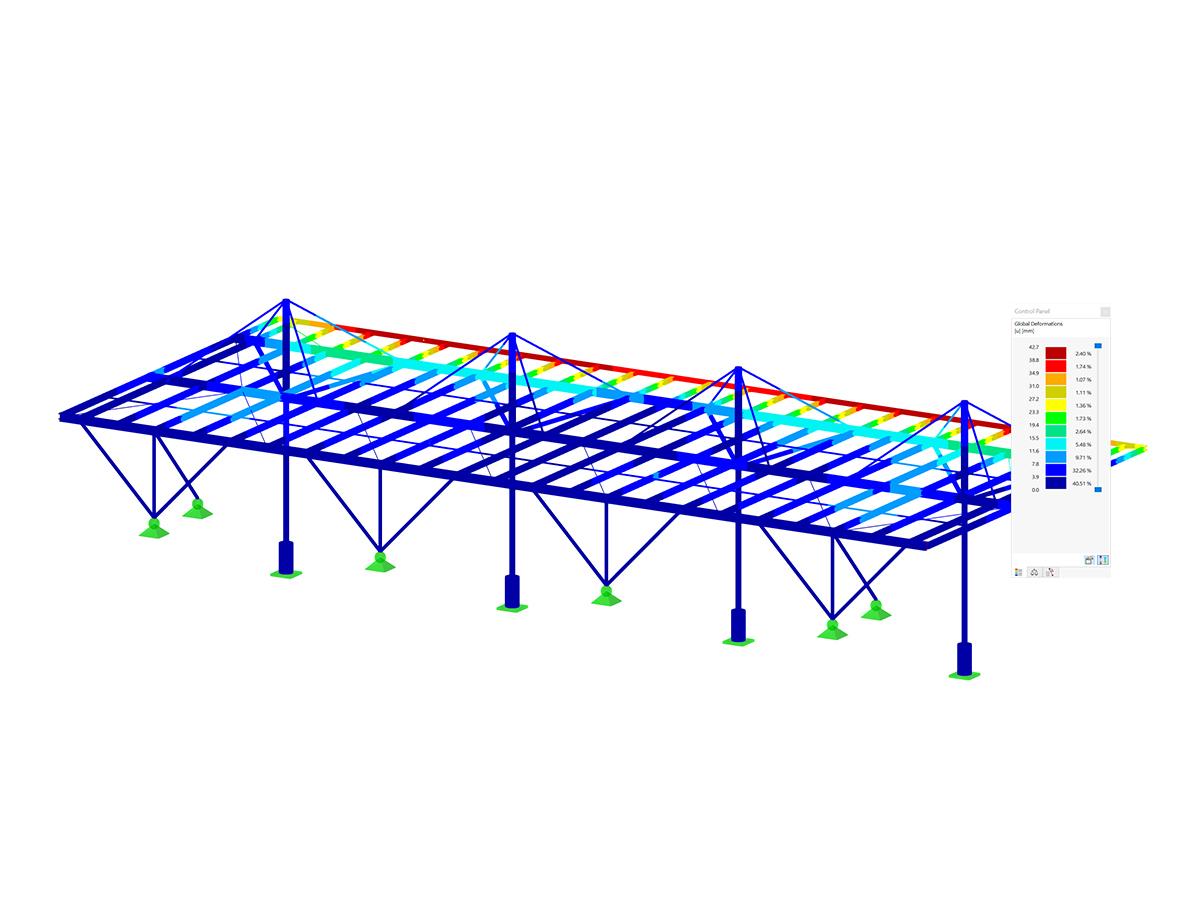
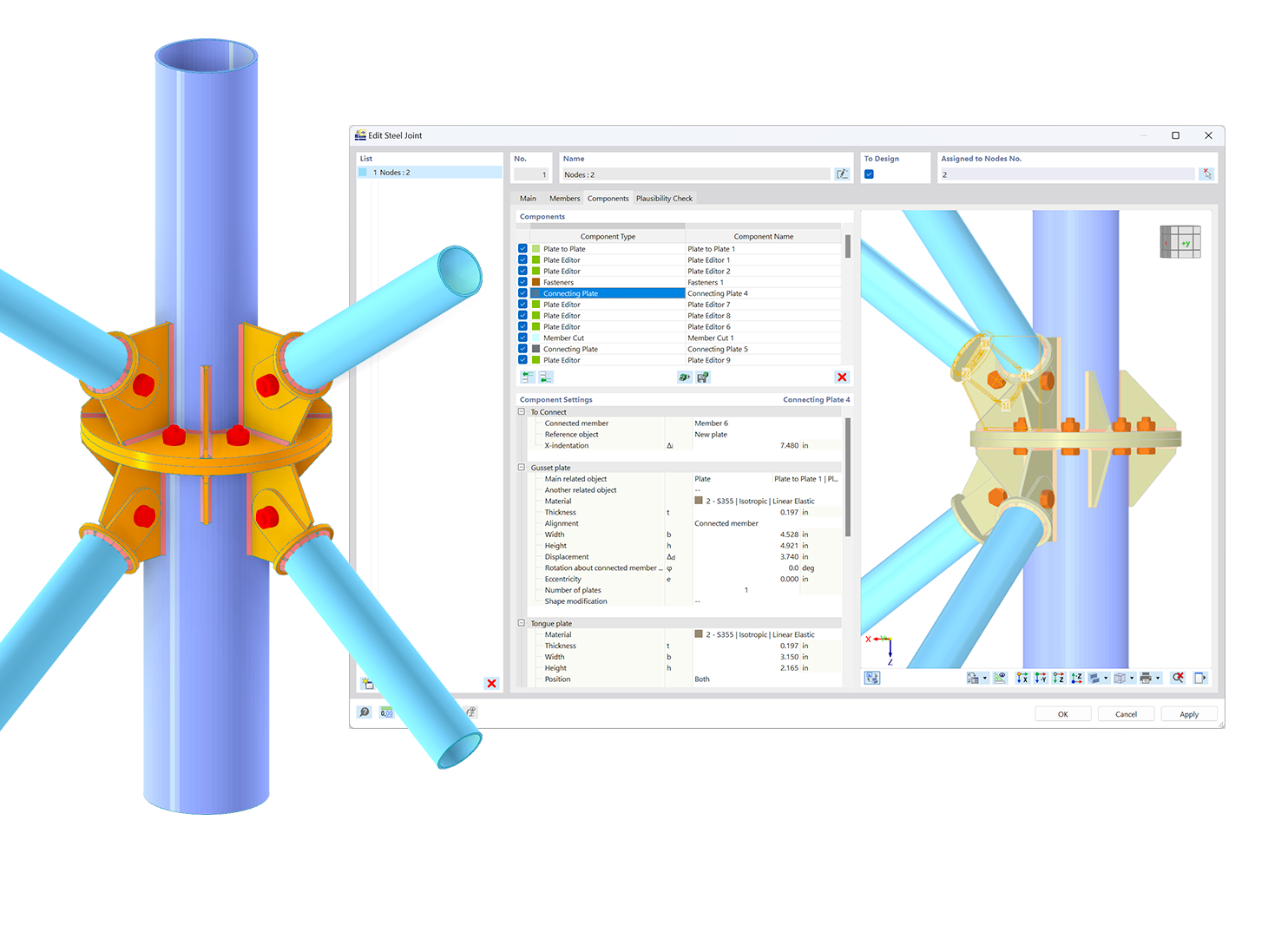.png?mw=600&hash=49b6a289915d28aa461360f7308b092631b1446e)
